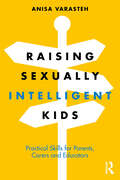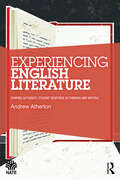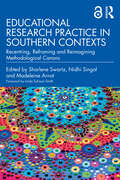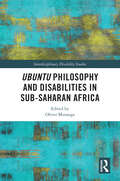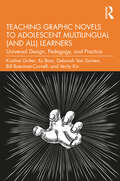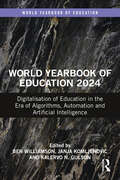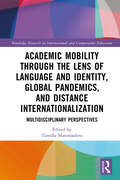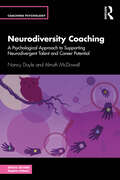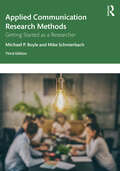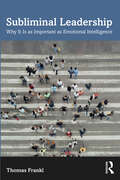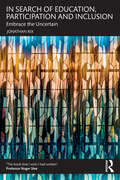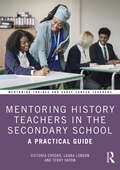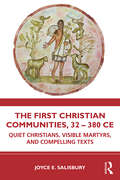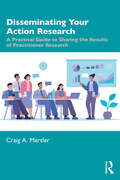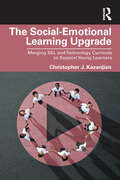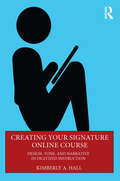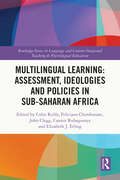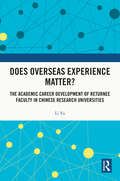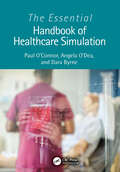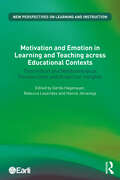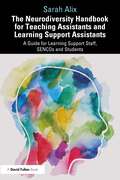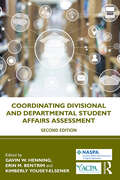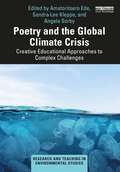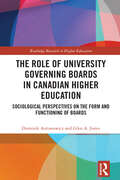- Table View
- List View
Raising Sexually Intelligent Kids: Practical Skills for Parents, Carers and Educators
by Anisa VarastehMany parents feel uncomfortable with the thought of having ‘the talk’ with their children, especially teenagers. But what many people don’t realise is how much of sexuality education has nothing to do with sex itself. In this book, Clinical Sexologist Anisa Varasteh teaches the foundations of a comprehensive sexuality education for children and teenagers and answers the most common questions young people have about sex and sexuality. Contrary to popular belief, talking about sex and sexuality does not make young people more prone to sexual experimentation. This book provides research-based evidence for how a comprehensive sexuality education is important for children’s safety, psychological and physical wellbeing. It identifies the barriers to having open conversations with children and teenagers, and outlines methods for how to overcome them. With a focus on skills, the book addresses the building blocks of sexuality education and how to develop an environment of mutual trust, it outlines key topics for discussion and the skills that children need to develop to make healthy decisions about their sexuality. Complete with practical support, including over 20 worksheets and a comprehensive list of tough questions from teenagers – and suggestions for how to address them – this book is an essential resource for parents, carers and educators who are responsible for the health, safety and development of children and teenagers.
Experiencing English Literature: Shaping Authentic Student Response in Thinking and Writing (National Association for the Teaching of English (NATE))
by Andrew AthertonWhat does it mean to experience a work of literature? What role does response play in the creation of literary meaning? And what matters – really matters – in the teaching of English Literature? In this book, Andrew Atherton offers a powerful and timely account of the vital role that student response plays in the English Literature classroom.This text is deeply immersed in the disciplinary traditions and legacies of what it has meant to experience English Literature, both for its teachers and students. As the English teaching community try to move beyond exam-driven responses, highly restrictive essay structures and explicit teaching of interpretation, this innovative text helps teachers to encourage responses from students that are more authentic and co-constructed. It contains dedicated chapters for teaching novels, plays and poetry as well as generative writing, sentence-level analysis and essay structure. Each chapter is furnished with a wealth of ideas, routines and activities, all ready to be embedded directly into the classroom. This book will play a key role in this continuing rejuvenation of an experience of English Literature that places a premium on student response and how to shape it.Experiencing English Literature remains actionable and practical, written first and foremost for teachers. It will be essential reading for any KS3/4/5 teacher of English Literature as well as Senior Leaders seeking to better understand the disciplinary traditions of English Literature.
Educational Research Practice in Southern Contexts: Recentring, Reframing and Reimagining Methodological Canons
by Sharlene Swartz Nidhi Singal Madeleine Arnot Linda Tuhiwai SmithBringing together a unique collection of 18 insightful and innovative internationally focused articles, Educational Research Practice in Southern Contexts offers reflections, case studies, and critically, research methods and processes which decentre, reframe, and reimagine conventional educational research strategies and operationalise the tenets of decolonising theory. This anthology represents a valuable teaching resource. It provides readers with the chance to read high quality examples of research that critique current ways of doing research and to reflect on how research methods can contribute to the project of decolonising knowledge production in and about education in, for example, Africa, South Asia, Asia, and Latin America. It grapples with everyday dilemmas and tricky ethical questions about protection, consent, voice, cultural sensitivity, and validation, by engaging with real-world situations and increasing the potential for innovation and new collaborations. Educational Research Practice in Southern Contexts will be essential reading for anyone teaching educational research methods and will encourage novice and experienced researchers to rethink their research approaches, disentangle the local and global, and challenge those research rituals, codes, and fieldwork practices which are often unproblematically assumed to be universally relevant.
Ubuntu Philosophy and Disabilities in Sub-Saharan Africa (Interdisciplinary Disability Studies)
by Oliver MutangaThis book uses Ubuntu philosophy to illuminate the voices of people with disabilities from Sub-Saharan Africa. Disability literature is largely dominated by scholars and studies from the Global North, and these studies are largely informed by Global North theories and concepts. Although disability literature in the Global South is now fast growing, most studies continue to utilise conceptual, theoretical, and philosophical frameworks that are framed within Global North contexts. This presents two major challenges: Firstly, the voices of people with disabilities in the Global South remain on the fringes of disability discourses. Secondly, when their voices are heard, their realities are distorted. This edited book, consisting of 11 chapters, provides case studies from Botswana, Ghana, Lesotho, Uganda, and South Africa, explores disability in various fields: Inclusive education, higher education, environment, Open Distance Learning, and Technical and Vocational Education and Technical Colleges. The book contributes to the ways in which disability is understood and experienced in the Global South thereby challenging the Western hegemonic discourses on disability. This collection of contributions will be of interest to all scholars and students of disability studies, development studies, medical sociology, and African studies.
Teaching Graphic Novels to Adolescent Multilingual (and All) Learners: Universal Design, Pedagogy, and Practice
by Kristine Gritter Xu Bian Deborah Van Duinen Bill Boerman-CornellThis book provides a roadmap for teaching with graphic novels as an effective and engaging approach to advancing reading comprehension for English Learners in secondary schools. Accessibly synthesizing and presenting existing graphic novel research, the authors walk through how to use graphic novels as a teaching tool to improve student motivation and key reading skills, increase their reading proficiency levels, and bolster their vocabulary. The authors provide curricular ideas for teaching multilingual, gifted, and striving readers, along with methods for developing critical literacy and multimodal comprehension. Applying a universal design approach and including examples, current graphic novel recommendations, and pedagogical strategies, this book is essential reading for pre-service teachers in TESOL and literacy education.
World Yearbook of Education 2024: Digitalisation of Education in the Era of Algorithms, Automation and Artificial Intelligence (World Yearbook of Education)
by Ben Williamson Janja Komljenovic Kalervo N. GulsonProviding a comprehensive, global overview of the digitalisation of education, the World Yearbook of Education 2024 examines the ways advanced digital technologies are transforming educational practices, institutions and policy processes.Establishing a critical research agenda for analysing the digitalisation of education, the carefully selected chapters in this collection interrogate the current impacts of new digital technologies, emerging controversies over emerging data practices and future implications of algorithmic systems, automated decision-making and AI in education. Organised into four sections, the contributions in the collection examine the following: The historical, scientific and technical foundations of contemporary digitalisation in education The political and economic dynamics that underpin the education technology industry and new platform models of education How algorithms, automation and AI support new modes of data-driven governance and control of education systems Controversies over the inequitable effects of digitalisation in education, and proposals for data justice, ethics and regulation This resource is ideal reading for researchers, students, educational practitioners and policy officials interested in understanding the future of digital technologies in education.
Academic Mobility through the Lens of Language and Identity, Global Pandemics, and Distance Internationalization: Multidisciplinary Perspectives (Routledge Research in International and Comparative Education)
by Tamilla MammadovaThis book takes a critical perspective on international academic mobility and contextualizes this mobility through different key factors including global pandemics, identity construction, intercultural sensitivity, and cultural engagement. Using a multidisciplinary approach, the volume investigates the current trends of international mobility programs with consideration to the new normal through social, political, economic, and educational factors among mobility exchange actors. Contesting established approaches to international academic mobility in paradigmatic contexts, the volume investigates the effects and implications of distance internationalization as an emerging concept, juxtaposing the traditional context of academic mobility with a newly emerging virtual one as a key catalyst for change. Offering a range of authentic studies, reviews, and cases to challenge international global education, this timely book will appeal to researchers, scholars, and postgraduate students in the fields of higher education research, international and comparative education, and the sociology of education more broadly.
Neurodiversity Coaching: A Psychological Approach to Supporting Neurodivergent Talent and Career Potential (Coaching Psychology)
by Almuth Mcdowall Nancy DoyleNeurodiversity Coaching demystifies the themes and assumptions affecting neurodivergent coachee experiences at work, whilst at the same time exploring the necessary safeguards required for working with this vulnerable group. The book supports existing coaching practitioners, managers and community leaders to understand the essentials of neurodivergence, a term which encompasses ADHD, autism, dyslexia, dyspraxia and Tourette Syndrome, and how these diagnoses require specific coaching approaches to support individuals to thrive at work. This book is practically focused on the “how”, sharing coaching exercises and activities that have been evaluated and researched by authors with extensive experience in the field. Grounded in coaching psychology theory, those with existing knowledge will be able to transfer their skill set to the neurodiversity context and those who are considering learning more about coaching can be signposted to essential knowledge and skills. Neurodiversity Coaching will be suitable for independent coaching practitioners and internal organisational coaches and managers seeking a coaching approach.
Neurodiversity Coaching: A Psychological Approach to Supporting Neurodivergent Talent and Career Potential (Coaching Psychology)
by Nancy Doyle Almuth McDowall- neurodiversity coaching is an emerging field, the topic of neurodiversity has been increasing in the past decade and general awareness is growing - this book will be the first, broad publication on neurodiversity coaching - uses science-based methodology
Applied Communication Research Methods: Getting Started as a Researcher
by Michael Boyle Mike SchmierbachThis third edition is again a practical introduction to communication research methods, foregrounding the role research plays in communication and media industry careers. Covering major methodologies such as surveys, experiments, focus groups, in-depth interviews, content analysis, and others, the book takes the reader through the research process from beginning to end. The text continues to help students link the research methods they learn to practical contexts through its activities and features, which include Voices From Industry boxes written by practitioners that give insight into application of methods; Steps to Success research review checklists; and numerous end-of-chapter activities to reinforce concepts. This third edition contains updates throughout, including an expanded discussion of reliability and validity across both qualitative and quantitative research contexts as well as new Research in Action boxes that showcase how research is used in professional and public contexts. The text is ideally suited to both undergraduate and graduate courses in communication research methods within communication, media, and mass communication programs. Online resources, including sample syllabi, PowerPoint slides, and test banks are available at www.routledge.com/9781032288819.
Subliminal Leadership: Why It Is as Important as Emotional Intelligence
by Thomas FranklUnderstanding the power of subliminal influence makes or breaks leaders. What is it that subliminally motivates people to give their best, not just what’s in their job description? How do you build an outstanding team? (Spoiler: it’s not just by putting the best people in a team.) The answer lies in the power of subliminal influence. This book explains in a clear and accessible way this important, yet little known and understood, area of psychology and leadership. As Emotional Intelligence helped managers and leaders to understand the importance of empathy in the workplace, Subliminal Leadership takes us to the next level by explaining how influence through non-verbal communication mostly happens below the threshold of our conscious awareness: subliminal forms of body language and communication which influence other people's attitudes, thinking and behavior – and which may boost, or undermine a leader's authority, the performance of teams or the quality of key customer relationships. Readers will learn how we unconsciously communicate and how we positively or negatively influence other people in the process. Understanding subliminal influence will help people in, or aspiring towards, leadership positions to build trust, understand others’ emotions, make better decisions, and strengthen professional relationships. Based on recent scientific research in disciplines as diverse as psychology, evolutionary biology, anthropology, medicine, neuroscience, and management studies, the book offers a breakthrough, multidisciplinary approach to influence and leadership. This book is for everyone interested in the psychological, biological, and medical dimensions of leadership.
In Search of Education, Participation and Inclusion: Embrace the Uncertain
by Jonathan RixIn Search of Education, Participation and Inclusion offers an original, coherent and inspiring approach to the delivery of education for all. Jonathan Rix, backed by extensive research, builds upon his wide-ranging professional and personal experiences to explore three conceptual innovations – models of certainty and uncertainty, the while of participation and communities of provision. Through these innovations, the reader examines the challenges faced by school systems in delivering inclusive and participatory experiences of learning. Topics explored include: • theories of education, participation and inclusion. • the constraints on our education systems as they struggle to deliver certainty in a world of uncertainty. • how the challenges of our systems collaborate with inequality to produce marginalised experiences of participation. • the exclusionary nature of our communities of provision. • how we can understand and enhance moments of participation. • how embracing uncertainty can lead to more meaningful participation and towards more inclusive communities. • policies and practices that enhance the possibility of education for all. This is a crucial read for any educator, educational leader or researcher with an interest in the development of innovative theory and practice in the fields of inclusive education and participatory practice.
Mentoring History Teachers in the Secondary School: A Practical Guide (Mentoring Trainee and Early Career Teachers)
by Victoria Crooks Laura London Terry HaydnMentoring History Teachers in the Secondary School supports mentors to develop the knowledge, skills and understanding essential to the successful mentoring of beginning history teachers who are undertaking their initial teacher training or being inducted into the profession as early career teachers. The authors critically explore models of mentoring and place subject specificity at the heart of every chapter, offering practical mentoring strategies rooted in the best evidence and research from the history teaching community. This book is a vital source of encouragement and inspiration for all those involved in developing the next generation of history teachers, providing accessible summaries of history-specific thinking on a range of topics alongside mentoring support. Key topics include: • Understanding what being a subject-specific mentor of beginning history teachers involves. • Establishing a dialogic mentor-mentee relationship. • Supporting beginning teachers to develop the substantive and disciplinary knowledge they need to become excellent history teachers. • Guiding beginning history teachers through the lesson planning process. • Conducting subject-specific lesson observations and pre- and post-lesson discussions. • Supporting beginning history teachers to consider the purpose of history education and how they can navigate this in relation to values education, the use of ICT, and the teaching of controversial and sensitive issues. Mentoring History Teachers in the Secondary School offers an accessible and practical guide to mentoring beginning history teachers, with ready-to-use strategies to support and inspire both mentors and beginning teachers alike.
The First Christian Communities, 32 - 380 CE: Quiet Christians, Visible Martyrs, and Compelling Texts
by Joyce E. SalisburyThis concise history of how the Christian Church grew between 32 and 380 focuses on the anonymous Christians who formed diverse congregations as they guided their communities through the age of the Apostles, violent martyrdoms, and to the establishment of the Roman Church. Readers will understand why people converted to Christianity in the first three centuries and learn about the rich diversity of the early church as people interpreted the new religion in different ways. This book explores how Christian interactions with the Roman empire led to violent persecutions and martyrdoms, and eventually the fourth-century establishment of the top-down Roman Church. Readers also become familiar with Christian texts during this period – some became Scripture and some were rejected, but all were written to make sense of the Jewish and Christian experience in the Roman Empire. These written memories shaped the future of the church. It also explores how early Christian lives were shaped by the religious rituals and preaching of their new and changing faith. In addition, maps, illustrations, and charts of Christian texts help tell this fascinating story. The First Christian Communities, 32 - 380 CE is an accessible and valuable resource suitable for students working on Christian history, and Roman and Late Antique social, political and religious history, as well as general readers who are interested in the origins of Christianity.
Disseminating Your Action Research: A Practical Guide to Sharing the Results of Practitioner Research
by Craig A. MertlerThis practical and easy-to-use book offers professional educators of any academic level, subject area, or position the tools, techniques, and strategies to disseminate, share, publish, and promote the results of their action research projects and studies. Acclaimed author Craig A. Mertler offers a clear-cut guide for practitioner-researchers, covering the following: A robust overview of action research/practitioner research, including its characteristics, processes, and professional benefits; Discussion of the main products for disseminating practitioner research, including written reports, presentations, and visual formats; Delivery strategies for disseminating practitioner research, including refereed publications (both practitioner and scholarly), face-to-face and virtual presentations (conferences, local presentations, and elsewhere), as well as social media and electronic media, from blogs and podcasts to Twitter and LinkedIn. Written for any educational practitioner in any role—from in-service and pre-service teachers in PK-12 or higher education settings to scholars, administrators, policymakers, staff, graduate students, and other researchers—this book offers a pragmatic and motivational guide useful for any field of education in which practitioner research is component.
The Social-Emotional Learning Upgrade: Merging SEL and Technology Curricula to Support Young Learners
by Christopher J. KazanjianThe Social-Emotional Learning Upgrade explores how today’s educators can connect two previously separated but important curricula in their schools: social-emotional learning (SEL) and educational technology. With schools’ SEL efforts pressed for time and resources and digital engagements often limited to skill development, K-12 students risk being unprepared to sustain their well-being and personal opportunities in a rapidly changing, technology-dependent world. Driven by a paradigm that synthesizes multicultural education and humanistic psychology, this book readies educators to implement SEL curricula that will support young learners as they navigate constant social and technological flux and that will nurture their unique perceptions of reality, their aspirations, and their mental and physical health. Each chapter’s novel insights will help to mitigate both student disengagement and teacher demoralization, enabling classroom pedagogies and the process of schooling to better align with the ways in which learners explore, express, and create meaning. Guiding pre-service teachers, leaders, and curriculum developers beyond common goals such as digital skills development, content mastery, or standardized testing, this volume focuses instead on complex digital literacies, collaborative experiences, problem- and project-based learning, culturally relevant pedagogies, and overall holistic growth.
Creating Your Signature Online Course: Design, Tone, and Narrative in Digitized Instruction
by Kimberly A. HallCreating Your Signature Online Course guides educators through the development of engaging, efficient, aesthetically pleasing, and narrative-rich online learning spaces. Despite the availability of numerous visual and textual communication tools and user-friendly learning management systems, instructors and support staff need concrete strategies for designing digital and online higher education courses that emphasize the appeal and relevance of the subject, reflect the instructor’s presence, and inspire students. Grounded in research and theory from psychology, instructional design, user and learner experience design, graphic arts, and storytelling, this book accessibly and practically showcases how teachers can leverage effective multimedia resources alongside their own expertise to meet students’ needs. These fresh insights into instructional goals, learner identity, tonal qualities, narrative aesthetics, student feedback, and more reveal how charismatic virtual course designs can empower learners and tap into their mindsets and literacies.
Multilingual Learning: Assessment, Ideologies and Policies in Sub-Saharan Africa (Routledge Series in Language and Content Integrated Teaching & Plurilingual Education)
by Colin Reilly Feliciano Chimbutane John Clegg Casmir Rubagumya Elizabeth J. ErlingThis edited volume provides the follow up to Erling et al.’s (2021) Multilingual Learning and Language Supportive Pedagogies in Sub-Saharan Africa. The strategies put forward in Volume 1 included multilingual pedagogies that allow students to draw on their full linguistic repertoires, translanguaging and other language supportive pedagogies. While there is great traction in the pedagogical strategies proposed in Volume 1, limited progress has been made in terms of multilingual education in SSA. Thus, the main focus of this follow-up volume is to explore the question of why former colonial languages and monolingual approaches continue to be used as the dominant languages of education, even when we have multilingual pedagogies and materials that could and do work and despite substantial evidence that learners have difficulties when taught in a language they do not understand. This book offers perspectives to answer this question through focusing on the internal and external pressures which impact the capacity for implementing multilingual strategies in educational contexts at regional, national, and community levels. Chapters provide insights into how to better understand and work within these contemporary constraints and challenge dominant monoglossic discourses which inhibit the implementation of multilingual education in SSA. The volume focuses on three main areas which have proven to be stumbling blocks to the effective implementation of multilingual education to date, namely: Assessment, Ideology and Policy. An insightful collection that will be of great interest to academics, researchers, and practitioners in the fields of language education, language-in-education policy and educational assessments in the wide range of multilingual contexts in Africa.
Does Overseas Experience Matter?: The Academic Career Development of Returnee Faculty in Chinese Research Universities
by Li YuThe book explores the academic characteristics, career development, and impacts of “foreignness” of Chinese overseas returnees in research universities. It provides valuable insights into the international mobility of academics and the challenges and opportunities that returnee scholars face in terms of research, teaching, international exchange, income, academic promotion, job satisfaction, and career mobility in their academic careers. Using first-hand large-scale survey data, the author presents quantitative analyses of the international mobility of Chinese academics at the individual level. She evaluates the impact of overseas experience on academic career development, and further proposes practical policy suggestions to attract and retain returnee talent in academia in China. The book’s findings have important implications for policy-makers, university administrators, and academics who seek to address the challenges and opportunities of international academic careers and promote the internationalization of research universities in China and beyond.
The Essential Handbook of Healthcare Simulation
by Paul O'Connor Angela O’Dea Dara ByrneHealthcare simulation is the modern way to educate healthcare providers to achieve high performance and to improve patient safety. It encompasses mannikin based training for teamwork and nontechnical skills, task trainers for procedural skills, simulated participants for communication skills, and virtual/augmented reality simulation. Based on an award-winning postgraduate course, this text provides the background knowledge required to: run a healthcare simulation centre; use simulation for training and education; and support simulation-based quality improvement and research activities. *Presents a focused and highly practical approach to course material *Offers a detailed guide for anyone who uses healthcare simulation for education, quality improvement, or research *Shows a practical focus for teaching, quality improvement, and research
Motivation and Emotion in Learning and Teaching across Educational Contexts: Theoretical and Methodological Perspectives and Empirical Insights (New Perspectives on Learning and Instruction)
by Gerda Hagenauer Rebecca Lazarides Hanna JärvenojaMotivation and Emotion in Learning and Teaching across Educational Contexts brings together current theoretical and methodological perspectives as well as examples of empirical implementations from leading international researchers focusing on the context specificity and situatedness of their core theories in motivation and emotion. The book is compiled of two main sections. Section I covers theoretical reflections and perspectives on the main theories on emotion and motivation in learning and teaching and their transferability across different educational contexts illustrated with empirical examples. Section II addresses the methodological reflections and perspectives on the methodology that is needed to address the complexity and context specificity of motivation and emotion. In addition to general reflections and perspectives regarding methodology, concrete empirical examples are provided. All cutting-edge chapters include current empirical studies on emotions and motivation in learning and teaching across different contexts (age groups, domains, countries, etc.) making them applicable and relevant to a wide range of contexts and settings. This high-quality volume with contributions from leading international experts will be an essential resource for researchers, students and teacher trainers interested in the vital role that motivation and emotions can play in education.
The Neurodiversity Handbook for Teaching Assistants and Learning Support Assistants: A Guide for Learning Support Staff, SENCOs and Students
by Sarah AlixThis highly practical book supports the knowledge and development of teaching assistants and learning support assistants (TAs/LSAs) in their understanding of neurodivergent pupils. Considering a neurodivergent world is vital in society today, and even more so in the classroom. Starting with a model of difference rather than deficit and highlighting the complexities involved, this accessible resource focuses on effective strategies to support these pupils and explores the vital role of learning support in a range of different contexts. Rich in pedagogical features, this book includes chapter objectives, areas for the reader to reflect upon, links throughout to the Teaching Assistant Standards and case studies for the reader to examine. Each chapter also has a further reading section which will include links to articles, websites, and organisations that can aid and support the development of TAs and LSAs. This important work will provide Special Educational Needs Co-ordinators (SENCos) with a framework to support their support staff in the classroom.
Coordinating Divisional and Departmental Student Affairs Assessment
by Gavin W. Henning Erin M. Bentrim Kimberly Yousey-ElsenerBy providing practical advice on how to inform and lead a successful assessment program in student affairs, Coordinating Divisional and Departmental Student Affairs Assessment, 2nd Edition helps student affairs professionals understand the impact of their initiatives, identify areas for improvement, and make data-driven decisions to enhance student learning, development, and engagement. Student affairs assessment plays a significant role in shaping the overall college experience. As higher education transforms, there is an even greater demand for student affairs assessment that informs practice, illuminates equity gaps, and improves student learning. This second edition builds upon the concepts of the first edition while adding essential topics that address the changing dynamics of leading assessment in a department or division in student affairs such as how to use and select assessment technology, meaningful ways to collaborate with institutional research, as well as creating equity-centered assessment practices. By utilizing the strategies in this book, student affairs divisions can create evidence-based practices that contribute to a more inclusive and supportive campus environment, foster student engagement, and ultimately enhance the educational journey for students. This updated and revised edition has been written with new and seasoned assessment practitioners in mind. It’s an ideal resource for graduate students and other student affairs practitioners who seek to find practical information to guide their own assessment practice.
Poetry and the Global Climate Crisis: Creative Educational Approaches to Complex Challenges (Research and Teaching in Environmental Studies)
by Amatoritsero Ede Sandra Lee Kleppe Angela SorbyThis book demonstrates how humans can become sensitized to, and intervene in, environmental degradation by writing, reading, analyzing, and teaching poetry. It offers both theoretical and practice-based essays, providing a diversity of approaches and voices that will be useful in the classroom and beyond. The chapters in this edited collection explore how poetry can make readers climate-ready and climate-responsive through creativity, empathy, and empowerment. The book encompasses work from or about Oceania, Africa, Europe, North America, Asia, and Antarctica, integrating poetry into discussions of specific local and global issues, including the value of Indigenous responses to climate change; the dynamics of climate migration; the shifting boundaries between the human and more-than-human world; the ecopoetics of the prison-industrial complex; and the ongoing environmental effects of colonialism, racism, and sexism. With numerous examples of how poetry reading, teaching, and learning can enhance or modify mindsets, the book focuses on offering creative, practical approaches and tools that educators can implement into their teaching and equipping them with the theoretical knowledge to support these. This volume will appeal to educational professionals engaged in teaching environmental, sustainability, and development topics, particularly from a humanities-led perspective.
The Role of University Governing Boards in Canadian Higher Education: Sociological Perspectives on the Form and Functioning of Boards (Routledge Research in Higher Education)
by Dominik Antonowicz Glen A. JonesThis book explores the historical and social foundations of Canadian higher education and provides a detailed analysis of university boards within this broader context of university governance. By examining rich empirical data from a sociological perspective, it offers unique insights into the role of boards, and the structures and practices that frame their work. It explores board composition, the professional backgrounds of board members, how members perceive their role, and the complex relationships between the board and the university president. The authors also compare and contrast the Canadian experience with governance reforms in Europe and other regions over recent decades. Drawing on multiple theoretical perspectives, the authors provide a nuanced analysis of the role of boards in terms of oversight, protecting university autonomy, representing societal interests, and dealing with increasing complexity and expectations. This innovative, original study makes an enormous contribution to our understanding of the role and work of Canadian university boards, and to international scholarship on higher education governance. It will appeal to scholars and researchers with interests across higher education, international and comparative education, and the sociology of education.
